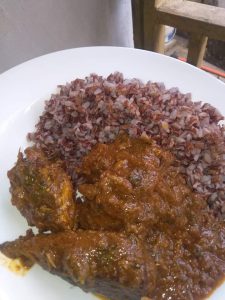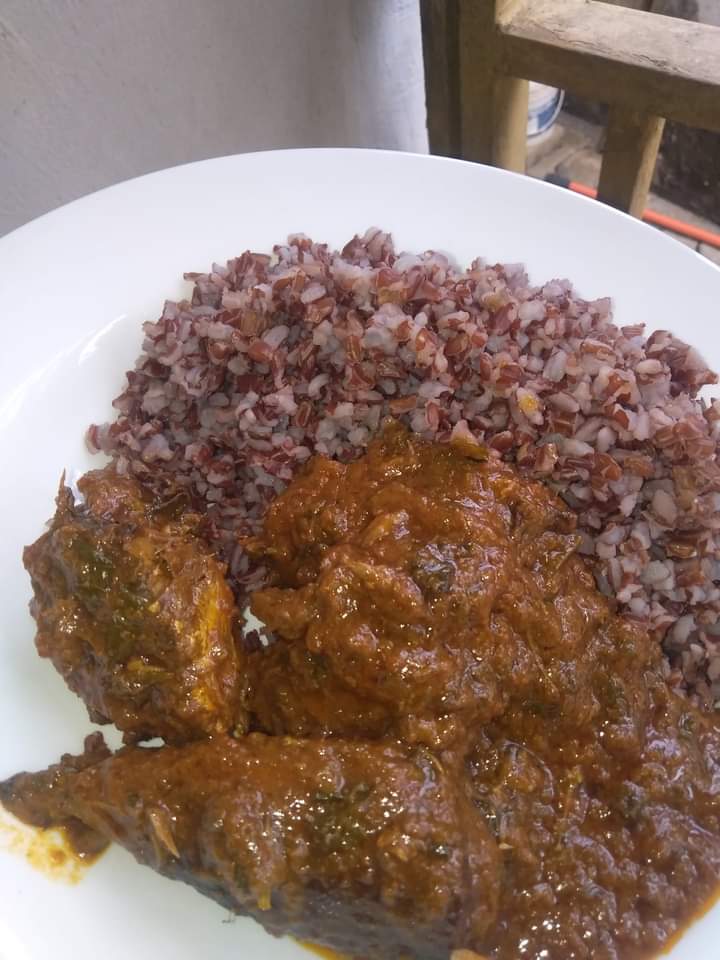Brown rice benefits and side effects
The exact topic of the article first appeared on www.nimedhealth.com.ng
Just like white rice, brown rice is a common staple around the world. It can be a great source of nutrients, especially when well-balanced. Brown rice can be enjoyed with salads, stews, meat sauces etc. It can also be added to sushi recipes, used in making salads, curries, and fries.
This whole grain is a healthy choice based on how it is processed. During processing, only the hull is removed. The bran and germ is retained, and these parts of the crop contains dense nutritional value.
Nutritional value of Brown rice
Brown rice is considered a healthier option than white rice. This is because of its nutritional benefits and medicinal properties. It can also be used in the prevention and treatment of ailments. Gastrointestinal issues like stomach upset, diarrhea can be managed with brown rice, including inflammation, haemorrhoids and skin ailments. Brown rice is loaded in sodium, potassium, protein, calcium, iron, selenium, zinc and vitamin A.
Brown rice Benefits
Manages diabetes: Brown rice is a good food choice for diabetics. It has a low glycemic index score and as such sugar is absorbed into the bloodstream slowly. This can reduce insulin surges, and help in the control of diabetes.

Protection from cancer: Brown rice contains antioxidants that help fight free radicals in the body that could cause damage. This variety of rice can help reduce your risk of cancer. They further inhibit the growth of tumors and development of cancerous cells.
Prevent obesity: Adding brown rice to your diet can help prevent obesity and other weight-related conditions. This is because brown rice is rich in manganese, a mineral good at breaking down fats in the body. Regular consumption of brown rice can also help reduce accumulated and belly fats.
Improves digestive health: Brown rice is a great source of fiber, which is good for the digestive health. It is a great meal source for people with digestive issues like constipation, bloating and colitis. Additionally, brown rice eases bowel movements and improves digestion.
Boost heart health: This is one of the many reasons people prefer brown rice to white rice. Brown rice can help lower the levels of bad cholesterol in the body. This helps prevent cardiovascular problems like strokes, clogged arteries and heart attacks. Consumption of brown rice also increases cardiovascular functioning, and can assist with blood pressure control.
Treat insomnia: Brown rice can as well treat insomnia. It contains melatonin, a sleep hormone that can help provide you healthy sleeping patterns.
Acts as an antidepressant: Brown rice contains neurotransmitters (glycerin, glutamine and GABA) that promote the feelings of happiness and well-being. It acts as an antidepressant and prevent depression and anxiety. It also enables you manage stress effectively. This whole grain is good particularly for lactating mothers. It is great for their mental health, reduces mood fluctuations, fatigue, depression and helps them cope well with stress.
Improve bone health: Brown rice also contains magnesium that helps improve bone and teeth health.
Other benefits of Brown rice include:
Prevent hair loss and breakage
Treat skin problems like psoriasis
Boost immune system
Side effects of Brown rice
Although brown rice is nutrient packed, it has its own downsides. Let’s take a look at some of them:
Brown rice contains phytic acid, an anti-nutrient found in nuts, seeds, legumes and whole grains; This component can negatively affect our body by blocking the absorption of magnesium, calcium and zinc in the body.
For those trying to gain weight, brown rice may not be a good food choice. Since it provides the feeling of satiety and curbs appetite.
Brown rice contains more arsenic than some grain types. This can be harmful and detrimental to health, especially if not consumed in moderate amounts.
Despite its negative effects, the nutritional benefits of brown rice outweigh its side effects.
Conclusion
Brown rice is a nutritious and gluten-free grain. It is a healthier alternative to white rice. It is packed in essential minerals and vitamins, as well as other beneficial medicinal properties. However, it will be good you switch your diets up, ensure its well-balanced and consume in moderation. Seek medical assistance and attention if you have any concerns.
Stella-maris Achumba
























